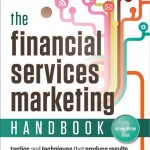You vs me — or we: A rant on financial marketing
Investment and wealth management executives like to talk about themselves. Who doesn’t? But this hurts their firms when it’s reflected in their marketing.
What financial advisors say about you vs. me–or we
A group of financial professionals helped me test my belief that talking about “you,” the audience, is more powerful than discussing “me”–or, by extension, “we,” the company that’s marketing to you.
Here’s the question I asked participants in “The Power of You: The Secret of Great Blogs that Boost Your Readership”:
Which introduction do you prefer? Introduction #1 focused on you, the audience or Introduction #2 focused on me, Susan. Explain your choice.
Prior to asking the question, I’d introduced my webinar in two ways. In Introduction #1, I’d discussed the benefits my audience would receive from watching my webinar. In Introduction #2, I described my blogging success and other credentials related to the webinar’s topic.
You may wonder how my two introductions relate to you, if you’re a financial advisor, investment manager, or wealth manager. In my experience, many financial websites – and other marketing pieces – use Introduction #2. They are about “we, the firm,” not “you,” the prospective client.
The results? A knockout by “you”
Respondents unanimously preferred the introduction focused on “you.” Here are some of their comments about why they preferred a focus on “you” over a focus on the speaker.
- When you spoke about yourself, I stopped listening
- You connects with me, lets me know whether it’s useful
- I don’t care about you, but I do care about what I can do to be successful
- “I” sounds pompous
- It’s not about the speaker, it’s about meeting the need of the target audience.
What this means for you
When writing marketing materials or client communications for your firm,
- Use “you” more than “we”
- Communicate in terms of benefits to your readers more than products, services, or characteristics of your firm
- After you write something, ask yourself, “Why will my reader care about this?” If it’s not obvious, then delete or re-write.
Which do you prefer for your company – marketing materials that use “you” or “we”? Why?
Please comment on your opinions.




Susan, I can’t tell you how many times I am coaching advisors on Lead with You. Thank you for this “proof.” If you ever toured the Internet reviewing Advisor sites, an unbelievable number start with Why Us? Or a picture of the advisor with a summary of “I have 15 years of experience and I this and I that.” Yes, we want to hear about you, but show me you care about me the consumer first.
What does your client worry about? Put it right there on the home page…How do they know if they are a good client for you? Describe your clients on the home page. (I could go on, but I will keep it short today….)
Thanks again!
Kristin
Kristin,
It’s good to know you’re spreading the word about the importance of “you.”
You and I are on the same page on this issue.
Susan,
Agree completely with Kristin about the value of this proof. Emphasizing “you” before “me” is especially important in formal oral pitches, when time is limited, and you need to engage the audience and differentiate your solution immediately.
Focusing on “you” first enhances credibility in any communication medium, because showing what you can do through discussion or solutions aimed at the audience is more persuasive than telling about yourself.
Opening with a hook addressing audience attitudes and interests is itself a powerful differentiator. As Kristin says, ask “what does your client worry about” and answer with the hook or WIIFM (“what’s in it for me?”), to make your audience receptive to your message.
Thanks for this proof, which I’m sure to use,
Susan
Susan, in my humble opinion your your suggestion is completely counter-intuitive — and right on the money (if I hear an American say “spot on” again I will lose my mind). Addressing your client’s source of pain immediately establishes a connection and answers the question in a cynical mind: Who cares?
Michael,
I am so glad you mentioned pain. I am a big believer in identifying and addressing your reader’s pain.
Thank you for commenting!